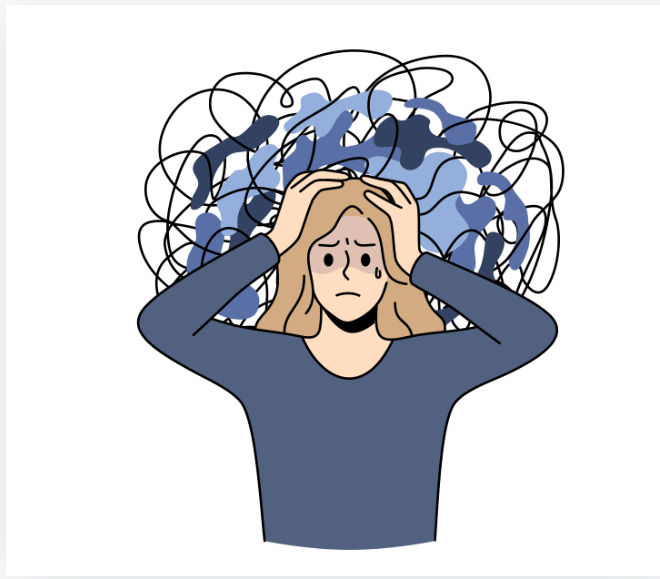Anxiety Disorder: Understanding Symptoms, Diagnosis and Effective
Strategies for Management
What is it:
Everyone can feel anxious sometimes, but individuals with Anxiety Disorders often experience intense
and excessive fear and worry. These emotions are typically accompanied by physical tension and
behavioural and cognitive symptoms. If left untreated, these symptoms can be difficult to control,
cause significant distress and persist over an extended period. Anxiety symptoms may begin to manifest
in childhood or adolescence and continue into adulthood.

Anxiety Disorder can manifest in various ways, affecting both
the mind and the body:
- Mental symptoms: Feeling nervous, restless or tense, fatigue, irritability,
impaired sleep, nightmares, trembling, repeated thoughts or flashbacks of traumatic experiences,
difficulty concentrating, restlessness and feelings of depression.
- Physical symptoms: Quickened and irregular heartbeats, perspiration and sweating,
pale complexion, cold or sweaty hands, dryness of the mouth, nausea, numbness or tingling in hands
or feet, shortness of breath, tension and pain in the muscles, shaking, diarrhoea, headaches and
back pain.
How to diagnose Anxiety Disorder:
Diagnosing Anxiety Disorder involves a comprehensive process such as physical examinations, mental
health tests and psychological questionnaires to determine conditions that may be causing symptoms by
a Mental Health Professional such as a psychiatrist, psychologist or psychiatric social worker. Read
more about Mental Health Professionals.
Treatment options for Anxiety Disorder:
Treatment varies based on the severity of Anxiety Disorder. Medication, psychotherapy and other
options are available, often used in combination by specialists.
- Medication: Psychiatrists may prescribe medications to help alleviate the
negative impacts of stress, anxiety and improve mood. Do not self-medicate, miss or adjust doses
independently.
- Psychotherapy (Talk therapy): Various forms of psychotherapy, including
Cognitive-Behavioural Therapy (CBT), Dialectical Behaviour Therapy (DBT), and
Psychodynamic therapy
can be effective in treating Anxiety Disorder.
Lifestyle changes to reduce Anxiety Disorder:
While it may not be possible to prevent Anxiety Disorders entirely, there are strategies and lifestyle
changes that can reduce the risk of developing them or help manage symptoms.
-
Adopting a healthy lifestyle can contribute to overall well-being and reduce the risk of
Anxiety
Disorder. This includes regular exercise, a balanced diet and adequate sleep.
-
Building and maintaining supportive relationships with family, friends or support groups
can
provide a buffer against stress and anxiety.
-
Being productive. Whether it is work, hobbies, volunteering or learning something new.
Staying
active and involved can provide a sense of purpose and fulfilment.
-
Limiting substance use including nicotine, alcohol and drugs as they can worsen anxiety
symptoms.
-
Practising mindfulness, meditation and relaxation exercises such as deep breathing, yoga
and
progressive muscle relaxation can promote a sense of calmness and reduce anxiety.
-
Seek counselling and support if you experience a traumatic or disturbing event. Doing so
can help
prevent anxiety and other unpleasant feelings from disrupting your life.
Self-educating, seeking support, seeking timely treatment and fostering open
conversations about
mental health are necessary steps towards recovery. In India, you can contact the mental health
helpline Tele MANAS at
14416
OR 1-800 891 4416 available every day of the week and offering support in
multiple languages.

